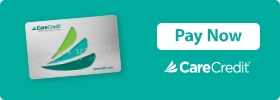Auto Injuries
Whether it’s minor back and neck aches or lingering pain, auto accidents can result in a number of injuries with a wide range of symptoms. If you’ve suffered an injury as a result of an auto accident, efforts to successfully manage your pain frequently include a combination of treatments, which can be adjusted or modified as you make progress during your recovery, tailored to your symptoms.
Causes
![]() Back and neck pain is often a result of an auto injury, usually caused by some type of sudden force. Affecting the neck and shoulders, whiplash is an example of a common auto-related injury resulting from a sudden forward or backward motion or a hard twist to either side. Neck pain can also stem from cervical radiculopathy or a disc injury. Lower back pain or mid-back pain from an auto injury is typically caused by some type of strain, fracture, or disc injury. Psychological issues related to an auto injury can cause emotional stress that may result in increased muscle tension. Inflammation from a direct impact to bones or joints can also be a cause of pain from an auto injury, although this type of pain is usually temporary unless there is another contributing factor.
Back and neck pain is often a result of an auto injury, usually caused by some type of sudden force. Affecting the neck and shoulders, whiplash is an example of a common auto-related injury resulting from a sudden forward or backward motion or a hard twist to either side. Neck pain can also stem from cervical radiculopathy or a disc injury. Lower back pain or mid-back pain from an auto injury is typically caused by some type of strain, fracture, or disc injury. Psychological issues related to an auto injury can cause emotional stress that may result in increased muscle tension. Inflammation from a direct impact to bones or joints can also be a cause of pain from an auto injury, although this type of pain is usually temporary unless there is another contributing factor.
Symptoms
Symptoms related to an auto injury can appear over time rather than immediately after the trauma. Immediate symptoms may include sharp, intense pain in the affected area, difficulty walking or maintaining balance, or discomfort starting as a dull ache that becomes progressively worse over time. Back and neck pain from an auto injury may be affected by movement, with discomfort varying. Leg and hip pain tends to be pressure-related, with symptoms present when you sit or stand in certain positions. Pain associated with an auto injury can include one or more of the following symptoms:
- Neck or shoulder pain and stiffness
- Abdominal pain, redness, or swelling
- Changes in physical function
- Pain that gets worse while sleeping
- Radiating numbness or tingling
Treatments
![]() Treatment for auto injuries depends on the extent of damage to muscles, joints, tendons, and ligaments and the underlying source of the pain. If your musculoskeletal system is affected in some way by your injury, which is often the case, chiropractic treatments may be recommended. Such treatments will include an effort to pinpoint the source of your pain, which may not be in the location where you’re experiencing discomfort. Physiotherapy, a hands-on approach to relieving muscle tension designed to promote mobility and increase functioning, may be a recommended treatment if you’re dealing with persistent muscle aches and difficulty with movements. Treatment may also include:
Treatment for auto injuries depends on the extent of damage to muscles, joints, tendons, and ligaments and the underlying source of the pain. If your musculoskeletal system is affected in some way by your injury, which is often the case, chiropractic treatments may be recommended. Such treatments will include an effort to pinpoint the source of your pain, which may not be in the location where you’re experiencing discomfort. Physiotherapy, a hands-on approach to relieving muscle tension designed to promote mobility and increase functioning, may be a recommended treatment if you’re dealing with persistent muscle aches and difficulty with movements. Treatment may also include:
- Physical or massage therapy
- Epidural steroid injections
- Percutaneous electrical nerve stimulation (PENS)
Even seemingly minor auto injuries shouldn’t be ignored. If you experience pain a few days, or even weeks, afterwards, contact Allied Pain & Spine Institute today to seek treatment to determine if there’s an issue requiring attention. A personalized approach to therapy that includes identifying the source of your pain, medication management, and nutrition and wellness education is often beneficial.

